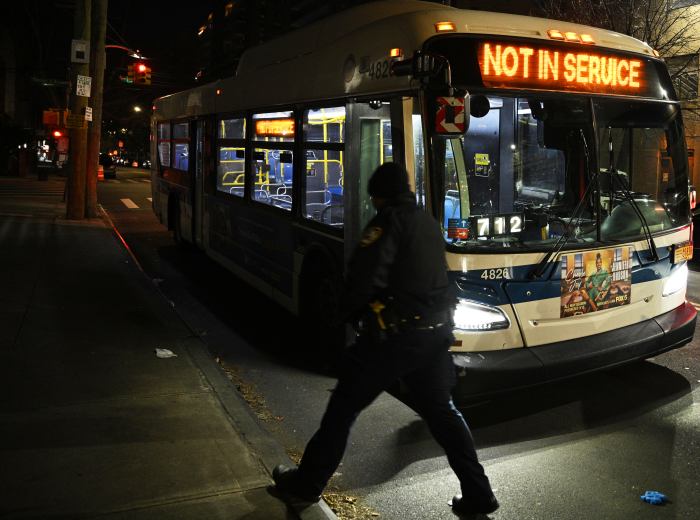Mayor Michael Bloomberg’s congestion pricing plan to charge drivers $8 and truck drivers $21 to enter Manhattan below 86th Street from 6 a.m. to 6 p.m. is not only a bad idea for Queens, but all the outer boroughs as well.
We agree with City Councilmember John Liu, Chair of the Council’s Transportation Committee, who wants to see improvements to the city’s mass transit system - such as new high-speed ferry service, expanded express bus service throughout the city and greater access to the Long Island Rail Road and Metro North.
He is right on target on this issue.
City Councilmember Leroy Comrie, Chair of the Queens Delegation, invited the mayor to visit Jamaica Avenue and other parts of Queens to view the congestion problems that exist in the borough each day. We agree with Comrie’s assessment that “the notion that traffic issues in Queens are less problematic than those in Manhattan [is false].”
This is especially true when we sit in traffic jams on Queens Boulevard, the Whitestone and Brooklyn Queens Expressways, the Grand Central and Cross Island Parkways, Roosevelt Avenue, Woodhaven, Astoria and Northern Boulevards and the longest parking lot in the world - The Long Island Expressway, to name some select favorites.
The mayor, who did a 180 degree turn on this proposal, is now pushing this congestion pricing scheme as part of his PlaNYC2030 to make the city a better place to live. Bloomy and his advisors have pointed to the plan in place in London, England since 2003 as a successful model of congestion pricing that has decreased traffic in that city.
We say, “It just ain’t so!”
The attempt to reduce traffic in London did not come without a huge price tag in both monetary costs and in human terms. According to a 2005 survey by the London Chamber of Commerce, 84 percent of businesses in London lost revenue, 63 percent cited fewer customers and 37 percent had reduced staffing after the plan was implemented.
Jobs were lost! Business was lost!
We agree with Paul Biggs, a spokesperson for the Association of British Drivers who told The Queens Courier, “It is a regressive tax that hits the poorest hardest, and doesn’t deter the better-off.” He added, “Little money has been raised for public transport, due to the high costs of implementing, running and enforcing the scheme, … the charge has not improved air quality and the congestion is no better than before the change was introduced.”
We agree with Biggs’ warning to New Yorkers, “if you accept the implementation of congestion pricing, then you have written the city a blank check with little or no control over what will be written on it in the future.”
Congestion pricing is a bad idea that has not worked as promised in London and will surely be a disaster here.































